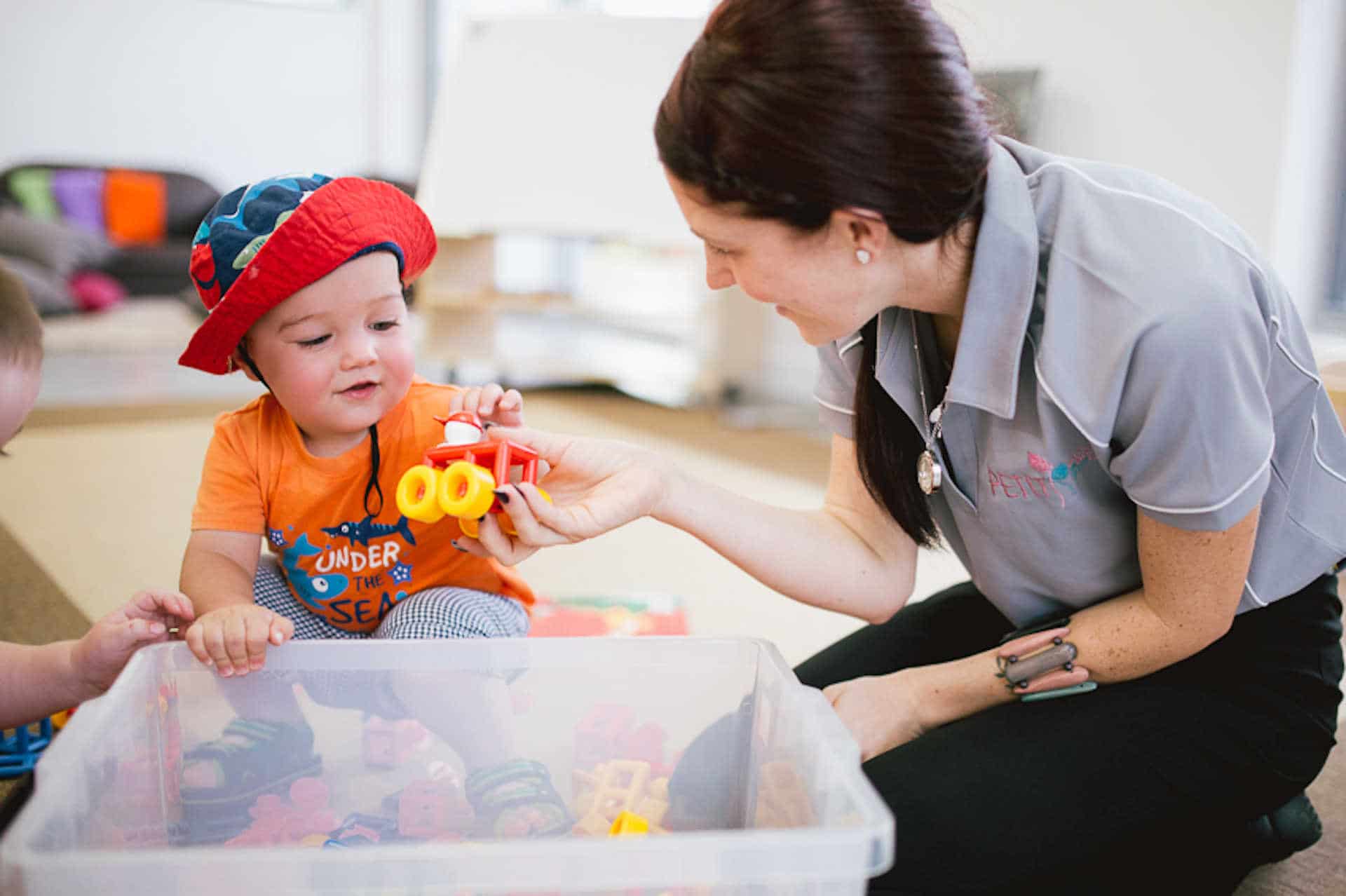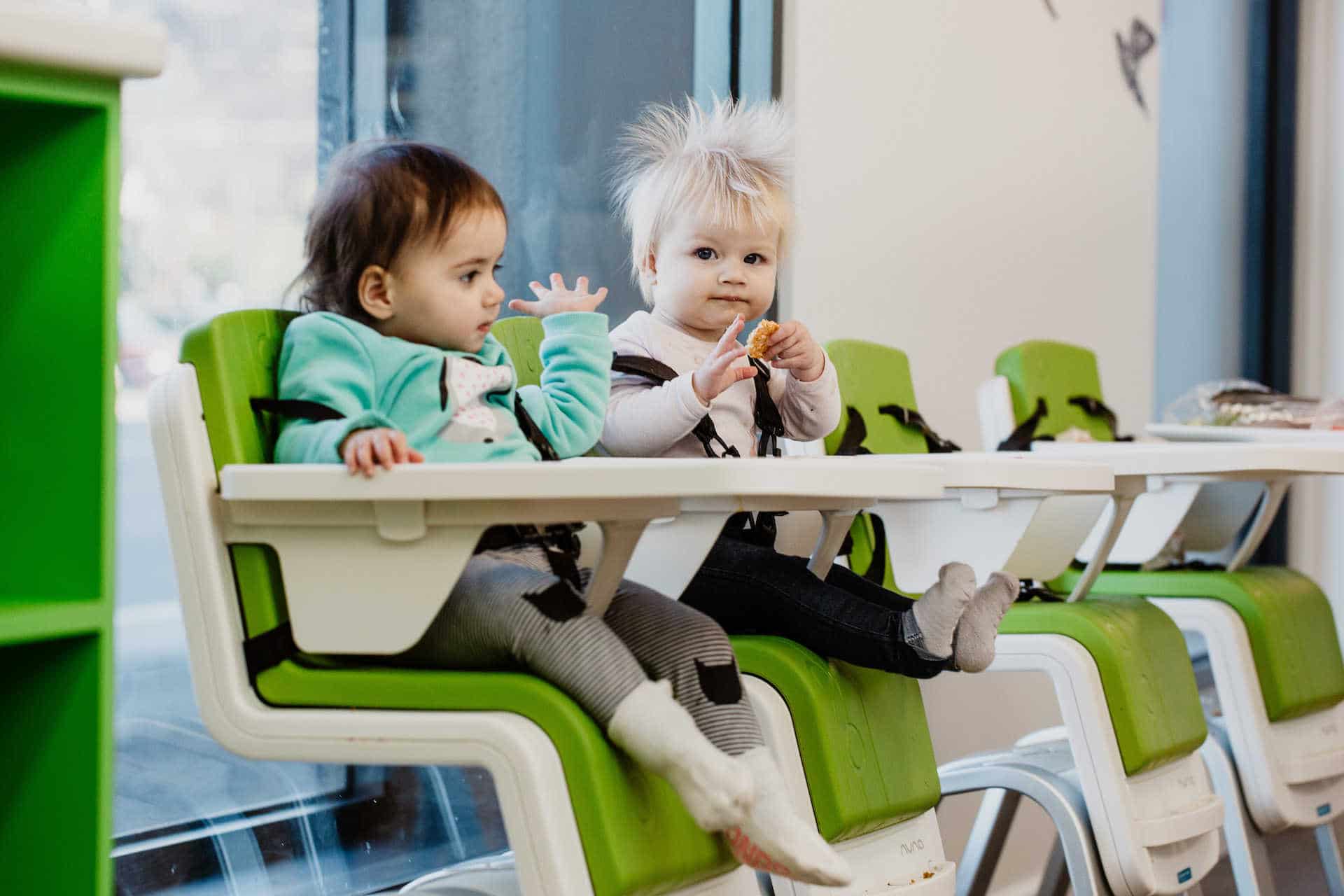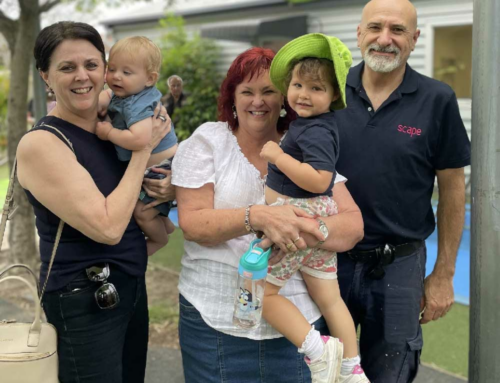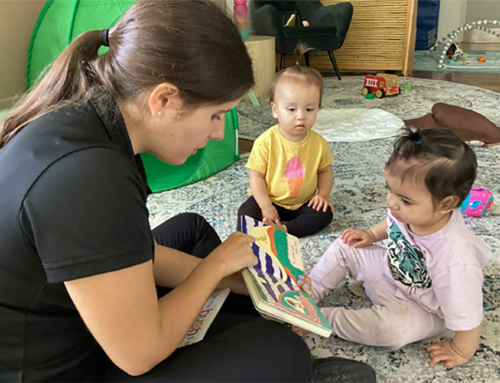Trusting someone else to care for your child can be a difficult decision, but it is easier if you know what the essentials of quality child care centre are. This way you can assess if they provide the level of care that you want for your child.
As the parent of a young child, you know how difficult choosing a childcare centre can be. You want what’s best for your child, but with so many options available to you it can be overwhelming to know what determines the quality of a child care location.
Early child care is crucial to your child’s development, as the care that they receive lays the groundwork for future schooling and socialising. The following areas are most acutely impacted by early childhood care decisions:
Brain development
The majority of your child’s brain growth happens between birth and age five. This means that their care providers will play a significant role in shaping your child’s mind. Children need constant stimulation and interaction to ensure that their mind is forming the connections that will be crucial to their development throughout the rest of their childhood.
Foundation for education
Research demonstrates that the quality of care that children receive in their youngest years has the ability to impact the foundations of their educational potential. Children who received high-quality early childhood care generally have higher aptitudes in language, mathematics, and social skills.
So how do you know whether a particular child care centre will provide the support that your child needs to be happy, healthy, and positioned for success?
What does a high quality child care program look like? Will you know it when you see it?
Some criteria are subjective. However, the absolute essentials of a quality child care centre are critical to selecting the appropriate program for your child.
Well trained staff specialising in early childhood education
Research indicates that staff training and preparedness is typically an accurate indicator of both the quality of care that the centre provides and its trajectory for long-term success. Recent investigation also indicates that early childhood education can be broken up into two distinct periods of your child’s life, and that babies and toddlers require different attention than preschool or elementary education.

There are sensory pathways that establish basic vision and hearing abilities as well as early language skills and more complex cognitive functions. Babies and toddlers require consistent and meaningful interactions in order for these pathways to develop, and your baby requires a different kind of interaction than your older children do in order to provide a strong foundation from which these skills can grow.
A specific focus in early childhood education, with an emphasis on children three years old and younger, is an important indicator of a quality child care centre. You can find more information on the science of early childhood education here.
A few other indications of a strong teaching environment include:
- Standard credentials required for each member of the childcare staff
- Provisions for continued education and development of educators
- A standardised program that all staff members are trained on and adhere to.
Individualised curriculum and observation of development progress
A quality child care centre will establish a curriculum for each child that is predicated on their individual needs as well as their stage of development. Children age three and younger should participate in curriculum that encompasses the following:
- Articulate goals to guide the child’s overall development
- Activities specifically structured to improve reasoning, problem solving, socialising, and language skills
- Definition of the experiences that the child will participate in and be exposed to
- Clearly defined roles for the child care centre caregiver(s) and family members
- Structured assessments to continually adapt curriculum to your child’s improving skills.
Your child’s educator should, on a regular (if not daily) basis, provide you with information regarding these activities as well as your child’s daily routine and any unplanned deviations from that routine. Before enrolling your child in a specific program, you should discuss how and how often your child’s progress will be communicated to you.
Daily observations regarding your child’s behaviours and overall development should be consistently shared as well. Written records describing your child’s activities and development should also be kept by the child care centre, and those records should be available to you upon request.
Appropriate staff-to-child ratio
Pay attention to the amount of staff employed at the child care centre as compared to the number of children that they are responsible for. A smaller the staff-to-child ratio will ensure that your child will receive more personalised attention.

Babies and toddlers in particular require a significant amount of individual attention and interaction with an adult in order to develop cognitive and communication skills. The Australian Children’s Education & Care Quality Authority (ACECQA) mandates the following ratios, effective as of 1 January 2016:
- Minimum ratio of 1 educator per 4 infants aged 24 months and younger (36 months and younger in VIC)
- Minimum ratio of 1 educator per 5 children aged 24 to 36 months
- Minimum ratio of 1 educator per 11 children aged 36 months and up to including preschool age (1 educator per 10 children aged 36 months and up to including preschool age in NSW)
Further information regarding the ratios mandated per each age group, by territory, can be found at the ACECQA website.
Relationship with primary caregiver(s) and continuity of care
Young children require consistent one-on-one interaction to foster strong development. That interaction is most effective when your child interacts with a specific staff member, or primary caregiver, on a regular basis.
Why? Because these relationships will allow your child to feel comfortable enough to explore, interact, and express themselves.
Babies thrive in strong one-on-one relationships, and having a primary caregiver at your child’s care centre will also give you the comfort to know that your child is in the hands of someone who understands their personality and individual needs.
Further, having such an individualised and consistent relationship will help your child to build the trust required to flourish under the care of someone other than yourself. The confidence to explore and to interact is crucial to early childhood development.
Safe and age appropriate environment
Babies and toddlers learn and grow by interacting with their environment constantly. This means that their environment needs to be both physically and emotionally appropriate.
Safety, of course, is an important factor. As your child becomes older and begins to roll, crawl, and walk about, they need to be able to explore without fear of physical injury or harm.
The childcare facility should be designed so that your child can be supervised by both sight and sound at all times. Other safety basics, such as fire extinguishers and first aid kits, should be onsite and readily available for use if required.
Other aspects of a child care environment worthy of consideration include the following:
- The number of quiet and active places in which your child can play
- The quality of the indoor and outdoor play spaces, and particularly the safety of the outdoor spaces
- Whether the “sleeping space” for your child is remote enough to allow them to nap peacefully
Finally, you should pay close attention to the toys and books kept in the space. Some child care centres stock only fairly standard toys for a “one size fits all” playing environment. High quality child care centres have a host of toys and games that are selected to meet a wide range of abilities and interests among the children that they care for. This is important to maximising the development of each child under their care, including your own.
Sources:
www.acecqa.gov.au/national-quality-framework/educator-to-child-ratios
www.childrenscabinet.org/child-care-resources/for-parents/why-is-quality-child-care-important/
developingchild.harvard.edu/resources/inbrief-science-of-ecd/






